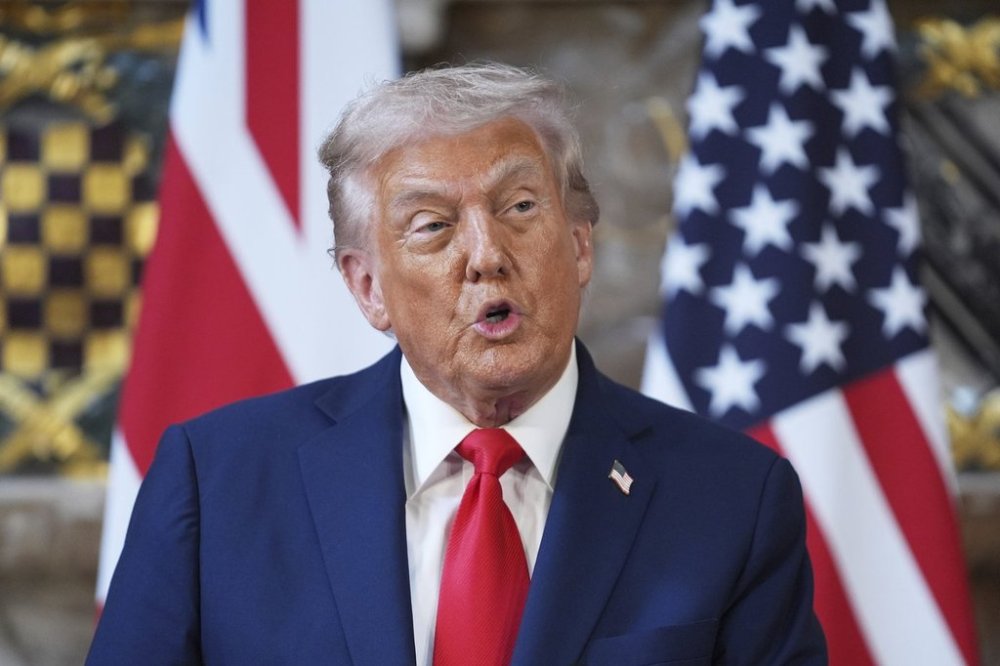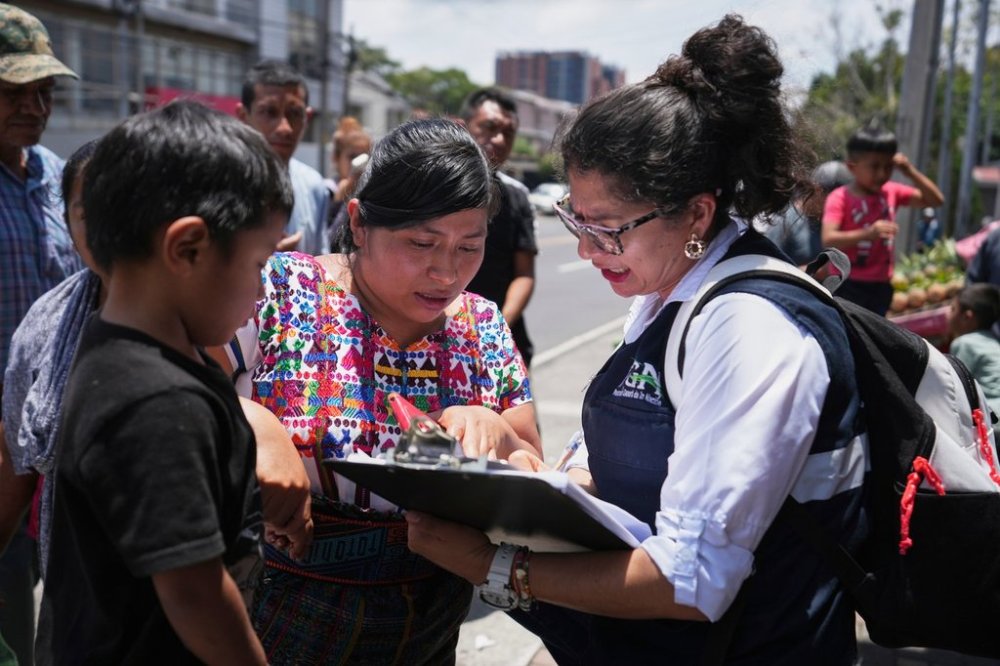Judge blocks Trump administration from immediately deporting Guatemalan migrant children
Advertisement
Read this article for free:
or
Already have an account? Log in here »
We need your support!
Local journalism needs your support!
As we navigate through unprecedented times, our journalists are working harder than ever to bring you the latest local updates to keep you safe and informed.
Now, more than ever, we need your support.
Starting at $15.99 plus taxes every four weeks you can access your Brandon Sun online and full access to all content as it appears on our website.
Subscribe Nowor call circulation directly at (204) 727-0527.
Your pledge helps to ensure we provide the news that matters most to your community!
To continue reading, please subscribe:
Add Brandon Sun access to your Winnipeg Free Press subscription for only
$1 for the first 4 weeks*
*$1 will be added to your next bill. After your 4 weeks access is complete your rate will increase by $4.99 a X percent off the regular rate.
Read unlimited articles for free today:
or
Already have an account? Log in here »
WASHINGTON (AP) — A federal judge on Thursday blocked President Donald Trump’s administration from immediately deporting Guatemalan migrant children who came to the U.S. alone back to their home country, the latest step in a court struggle over one of the most sensitive issues in Trump’s hard-line immigration agenda.
The decision by U.S. District Judge Timothy J. Kelly comes after the Republican administration’s Labor Day weekend attempt to remove Guatemalan migrant children who were living in government shelters and foster care.
Trump administration officials said they were seeking to reunify children with parents who wanted them returned home. “But that explanation crumbled like a house of cards about a week later,” Kelly wrote. “There is no evidence before the Court that the parents of these children sought their return.”

There was already a temporary order in place preventing the removal of Guatemalan children. But that was set to expire Tuesday. Kelly, who was appointed by Trump, granted a preliminary injunction extends that temporary protection indefinitely, although the government can appeal.
Kelly did rebuff advocates’ push to block the removal of children from additional countries, though he said any attempt to remove those children in a similar way would likely be unlawful.
There are also temporary restraining orders in separate cases in Arizona and Illinois, but those cases are much more narrow in the scope of children they cover, underlining the importance of the Washington case.
In a late-night operation Aug. 30, the administration notified shelters where migrant children traveling alone initially live after they cross the U.S.-Mexico border that they would be returning the children to Guatemala and that they needed to have the kids ready to leave in a matter of hours.
Contractors for Immigration and Customs Enforcement picked up the Guatemalan children from shelters and foster care and transported them to the airport. The government has said in court filings that it identified 457 children for possible removal to Guatemala although that list was eventually whittled down to 327. In the end, 76 got as far as boarding planes in El Paso and Harlingen, Texas, on Aug. 31 and were set to depart to Guatemala in what the government described as a first phase.
Immigration and children’s advocates, who had been alerted of possible efforts to remove Guatemalan minors, immediately sued the Trump administration to prevent the children’s removal. The advocates argued that many of these children were fleeing abuse or violence in their home countries and that the government was bypassing longstanding legal procedures meant to protect young migrants from being returned to potentially abusive or violent places.
Another federal judge in Washington granted advocates a temporary restraining order largely preventing the Trump administration from removing Guatemalan migrant children in its care except in limited circumstances where an immigration judge had already ordered their removal after reviewing their cases. That initial 14-day order was set to expire on Sunday, and then Kelly extended it through Tuesday to give him extra time to examine the case.

The government has argued that it has the right to return children in its care and it was acting at the behest of the Guatemalan government. But the government walked back an initial claim alleging the parents requested their children be sent back.
The Guatemalan government has said that it was concerned over minors in U.S. custody who were going to turn 18 and would then be at risk of being turned over to adult detention facilities.
Children who cross the southern border alone are generally transferred to the Office of Refugee Resettlement, which falls under the Department of Health and Human Services. The children usually live in a network of shelters across the country that are overseen by the resettlement office until they are eventually released to a sponsor, usually a relative.
After advocates got the temporary restraining order approved for Guatemalan children, they also asked the court to extend protections from deportation to children of other nationalities after hearing reports that the government was intending to remove Honduran children as well.
